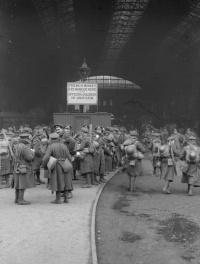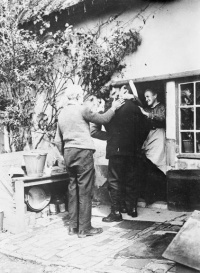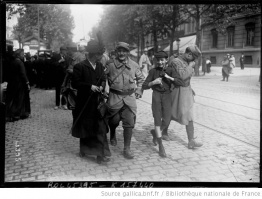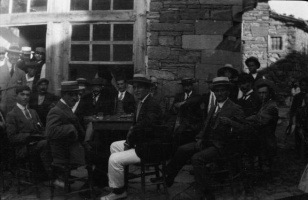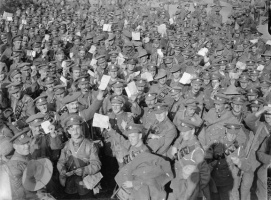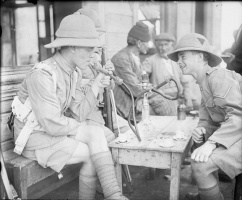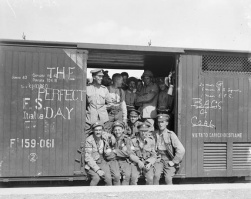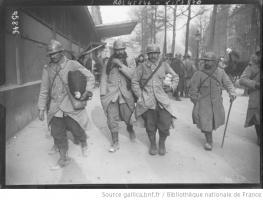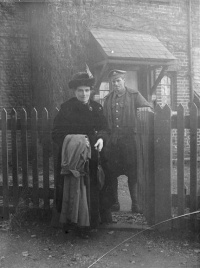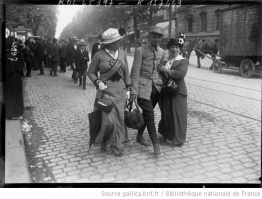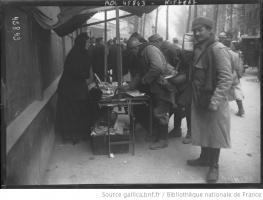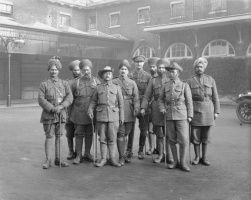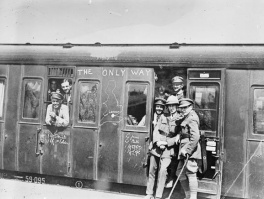Rationale for Periods of Leave↑
In August 1914, when the First World War began, the belligerents expected a short war. Allowing men to return home before achieving victory was not an option. During war, then, correspondence was virtually the only link between the soldiers at the front and their families at the rear. When the conflict continued beyond the winter of 1914-1915, both civilian and combatant morale became vulnerable in all countries at war. In 1915, the German, French, and British armies gradually allowed fighters to take a few days of leave at the rear, and if possible, to return home.
Differences According to Nation and Rank↑
In practice, these periods of leave were rare and short during the war, as departures depended on the course of military operations. Leave also became a source of inequality among combatants. The French troops were granted leave that lasted three to ten days, two to three times per year, starting in July 1915. On the German side, soldiers had to wait one year at the front before they even had the possibility of going home for two weeks. In the Dominion and Imperial forces, leave was even more critical than in France or Germany. As combatants were very far from home, logistical difficulties and the fear of desertion often condemned them to spend their leave abroad.
Major differences also existed between the leave periods for officers and men. In the British Army, for example, soldiers were allowed a leave every fifteen months on average, while officers were allowed one every three months. In the French Army, the leave system pointed out the sensitive issue of inequity in a conscript army where citizenship was achieved through military duties. Starting in 1915, improvement of the leave system became a critical issue for combatants, who were backed up by the press and parliament to get equal and more regular periods of leave. This pressure led to the establishment, in autumn 1916, of the right to three annual leave periods, and in 1917 and 1918, the lengthening of leave periods. In fact, leave figured prominently in the 1917 mutineers' claims, solidifying the link between leave and French political culture.
Impact of Leave Periods↑
Periods of leave were extremely valuable for men fighting in the war, as time off gave them the opportunity to rest and see their families. This horizon of expectation in the short term was much more encouraging than the prospect of waiting for peace. Fighters on leave got involved in peacetime activities, such as work in the fields or entertainment. Periods of leave thus created concrete links between the front and rear, allowing uncensored direct communication. These links also showed up in wartime narratives, portraying interactions within the symbolic sphere when the front met the rear. Soldiers on leave often felt ambivalent towards civilians, but some of them loathed going home on leave because they no longer felt at home in civilian society. Leave periods were also marked by numerous behavioral transgressions, beginning with indiscipline in trains. Fraud became common practice among French soldiers on leave; many soldiers misbehaved as a way to cope with the discipline they were subjected to back in the trenches.
Emmanuelle Cronier, Université de Picardie-Jules Verne
Section Editor: Alexandre Lafon
Selected Bibliography
- Cronier, Emmanuelle: Permissionnaires dans la Grande Guerre, Paris 2013: Belin.
- Fuller, J. G.: Troop morale and popular culture in the British and Dominion armies, 1914-1918, Oxford 1990: Oxford University Press.
- Watson, Alexander: Enduring the Great War. Combat, morale and collapse in the German and British armies, 1914-1918, Cambridge; New York 2008: Cambridge University Press.
- Winter, Jay / Robert, Jean-Louis (eds.): Capital cities at war. Paris, London, Berlin, 1914-1919, 2 volumes, Cambridge; New York 1997-2007: Cambridge University Press





